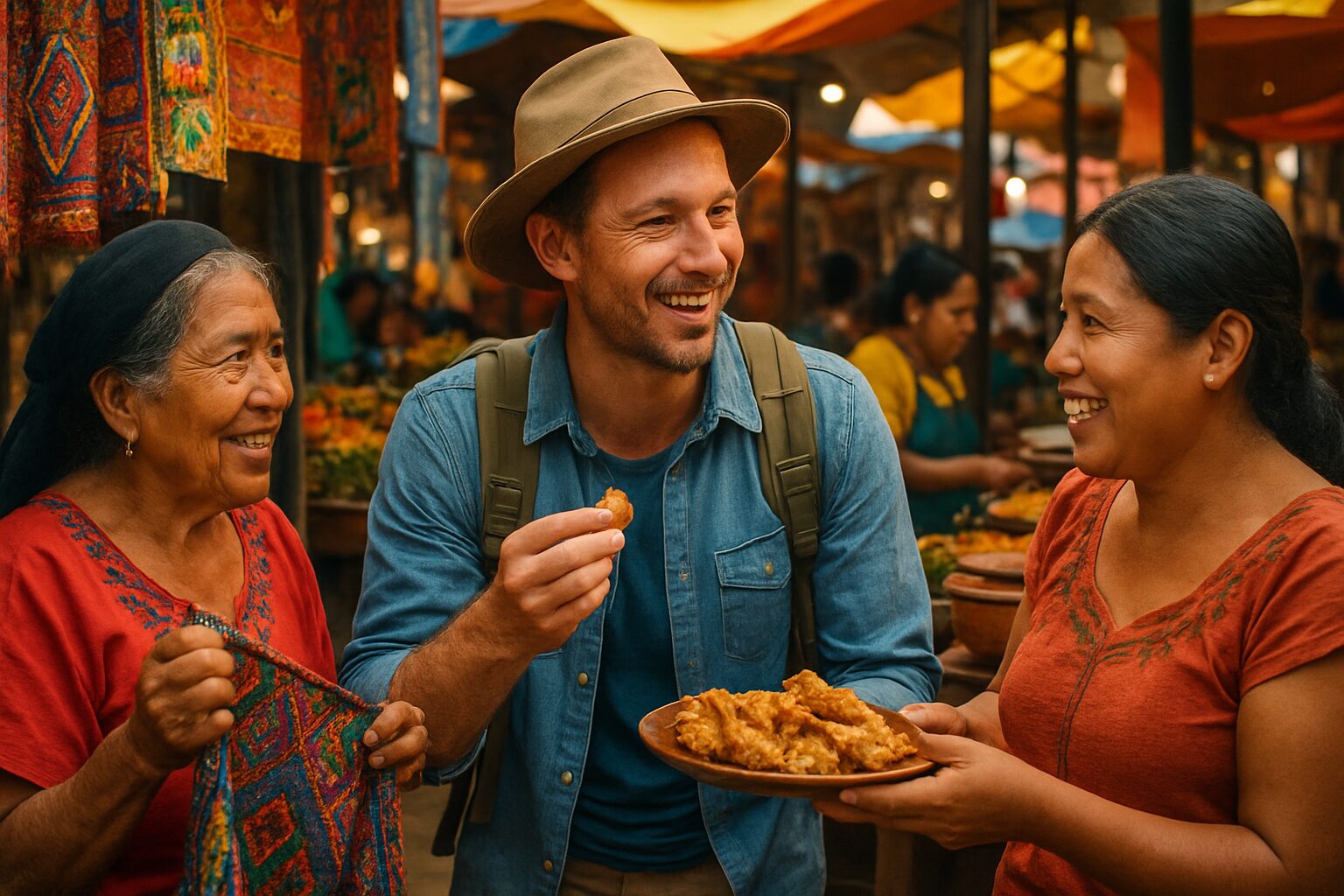In an era where fast-paced lifestyles often seep into travel habits, slow travel emerges as a refreshing counterpoint that invites wanderlust enthusiasts to engage more deeply with their journeys. This mindful mode of exploration champions quality over quantity, urging travelers to escape the frenzy of ticking off landmarks and, instead, immerse themselves in the authentic rhythms of the places they visit. Slow travel’s roots intertwine with sustainability and cultural respect, reflecting a growing global consciousness about the impacts of tourism today.
Practitioners of slow travel prioritize forging meaningful connections to local communities, savoring traditional Slow Food, and embracing sustainable travel practices that leave a positive imprint. Intrepid Travel, Earthwalks, G Adventures, and The Good Travel Co. are among leading organizations promoting this transformative approach. It calls for long-term stays, mindful exploration, and adventures shaped by curiosity rather than rigid schedules. Mindful travelers often find their experiences enriched by off-season visits, nature-based activities, or even digital detoxes that foster presence and gratitude.
The approach extends far beyond an itinerary or a mode of transportation; it’s a philosophy that cultivates mental wellness, personal growth, and environmental responsibility. Informed resources such as Mindful Wellness Traveler and The Green Voyage provide practical advice for adopting this thoughtful method. Whether indulging in a rural retreat or joining a community festival, the slow travel voyager discovers a richer, more balanced, and fulfilling way to embrace the world while treading lightly upon it.
How Cultural Immersion Guides Authentic Slow Travel Experiences
One of the cornerstones of embracing slow travel lies in cultural immersion. This approach invites travelers to go beyond superficial sightseeing and engage with the heartbeat of a destination—its people, traditions, and way of life. Unlike conventional tourism that often hurriedly glances at highlights, slow travelers actively participate in community events, workshops, and everyday rituals that tell the true story of a place.
Learning local languages, even just a few phrases, greatly enhances these cultural exchanges. It breaks down barriers, earning respect and opening doors to heartfelt moments. For example, joining a traditional cooking class can uncover regional Slow Food practices, emphasizing local ingredients and historic culinary methods. Beyond food, participation in craft workshops or attending festivals connects travelers with authentic local expressions of art and celebration.
Local markets are excellent venues for cultural engagement, allowing travelers to witness the community’s rhythm, from farmers offering seasonal produce to artisans selling handmade goods. Through such immersion, visitors gain a rich understanding of history, social values, and the environmental context that frames daily life, fostering empathy and respect.
- Participate in traditional festivals or communal meals
- Take language lessons to communicate with locals
- Engage in local craft or music workshops
This method of travel also helps combat the homogenization often caused by mass tourism. By supporting local artisans and businesses, travelers contribute positively to the local economy and cultural preservation. Organizations like G Adventures and Earthwalks promote itineraries that emphasize these meaningful interactions while adhering to Responsible Travel principles that honor local customs.
| Activity | Benefits | Tips for Travelers |
|---|---|---|
| Traditional Cooking Classes | Insight into Slow Food culture, connection with local ingredients | Research authentic schools and offer respect to instructors |
| Community Festivals | Experience vibrant traditions and social connections | Arrive with an open mind and comfortable attire |
| Local Language Learning | Breaks communication barriers, fosters deeper understanding | Practice phrases before arrival, stay patient and humble |

For travelers keen to deepen their cultural immersion, exploring the insights available at Celebrate Life’s Adventures and The Inspiring Journal can provide valuable guidance. These resources highlight practical steps for fostering authentic relationships and making travel an enriching cultural dialogue rather than a fleeting snapshot.
Adopting Sustainable Travel Practices for Long-Lasting Impact
The shift toward slow travel inherently promotes sustainable travel, a vital consideration in today’s environmentally aware world. Unlike conventional tourism models that often accelerate resource depletion and pollution, slow travel embodies a philosophy of conservation and responsibility. Efforts include staying in eco-friendly accommodations, using public transportation, and carefully selecting travel experiences that support local economies.
Many slow travelers embrace destinations famous for their commitment to sustainability, where they can engage in conservation projects or participate in eco-tour initiatives. Companies like The Good Travel Co. specialize in such eco-conscious tours, integrating opportunities to assist in habitat restoration or cultural preservation. The underlying principle is leaving each place better than it was found.
Food choices play an important role, with many travelers gravitating toward Slow Food restaurants and market visits that prioritize organic, seasonal, and locally sourced ingredients. This preference aligns travel experiences with environmental well-being and supports regional small-scale farmers and producers.
- Choose accommodations certified for sustainable practices
- Utilize public transit, cycling, or walking instead of flights or taxis
- Support local artisans by purchasing handmade, non-mass-produced goods
- Participate in environmental clean-ups or community projects
Remaining mindful of one’s carbon footprint also means planning travel that avoids excessive short-haul flights or high-impact activities. Sharing travel stories and encouraging others to practice similar responsibility helps amplify the benefits of sustainable tourism globally.
| Sustainable Action | Practical Examples | Long-Term Benefits |
|---|---|---|
| Eco-friendly Accommodations | Hotels using renewable energy, water recycling systems | Reduces environmental impact, supports green industry growth |
| Low-Emission Transport | Train journeys, electric bike rentals, public buses | Decreases carbon emissions, encourages slower appreciation |
| Local Economic Support | Buying from local markets, dining at family-owned restaurants | Preserves cultural heritage, sustains livelihoods |

For further inspiration around sustainable slow travel, exploring content on Intentionally Simple and Slower Journeys can help prospective travelers align their intentions with actionable plans that foster environmental and social wellness during vacations.
The Transformative Power of Long-Term Stays in Slow Travel
Contrary to typical short visits, long-term stays serve as a vital component of slow travel, allowing travelers to delve beneath the surface and uncover the subtleties that make each destination unique. The luxury of time shifts travel from a checklist to an evolving story filled with nuanced discoveries and personal growth.
Extending stays encourages travelers to experience local routines, seasonal shifts, and community dynamics that would otherwise be missed. It cultivates a more intimate understanding of regional dialects, daily rhythms, and social protocols. Frequent invitations to local gatherings or spontaneous occasions become possible, turning visitors into welcomed participants rather than spectators.
Furthermore, long-term accommodations often present opportunities for cultural exchange or volunteering. For instance, choosing homestays or farms where guests can contribute through work shares the value of community and personal enrichment, a rising trend supported by slow adventure tour operators like Earthwalks and Intrepid Travel.
- Research visa and accommodation options for extended visits
- Engage in local activities, volunteer, or join clubs
- Savor slower, seasonal foods and local preparations
- Keep a journal to chronicle gradual impressions and learning
| Aspect | Benefit of Long-Term Stay | Recommended Practice |
|---|---|---|
| Community Integration | Builds deep human connections and cultural insight | Live with locals through homestays or shared housing |
| Seasonal Awareness | Appreciate natural cycles affecting food and festivals | Stay through different seasons instead of brief visits |
| Personal Growth | Fosters mindfulness, adaptability, and cultural empathy | Participate actively in community projects or workshops |
A wealth of advice about the benefits and practicalities of prolonged travel stays can be found on platforms like Adventureite and Timeless Travel Steps, equipping travelers with the knowledge to turn temporary locations into second homes enriched by meaningful local ties.
Embracing Mindful Exploration for a Balanced Travel Experience
Mindful exploration represents the soul of slow travel, deeply anchoring the traveler in the present moment. This practice cultivates an intentional way of perceiving surroundings, promoting reflection, connection, and observation rather than a hurried list of attractions.
Examples of mindful exploration include lingering in a cozy local café to watch daily interactions, embarking on walking tours that reveal hidden architectural gems, or simply resting in a park to absorb the surrounding nature’s calm. This engagement fosters mental clarity, reduces travel-induced stress, and invites gratitude for subtle details that usually go unnoticed.
Journaling can be a powerful companion for mindful travelers, capturing thoughts and feelings as they unfold. This reflective practice enhances memory retention and personal insight, enriching the travel story well beyond photographs.
- Practice slow walking tours or self-guided neighborhood discoveries
- Engage all senses when observing new environments
- Limit digital distractions by turning off devices at intervals
- Attend local workshops to deepen awareness of cultural nuances
| Practice | Benefits | Traveler Tips |
|---|---|---|
| Walking Tours | Deeper environmental connection and exercise | Wear comfortable shoes; explore beyond main streets |
| Journaling | Improves mindfulness and preserves memories | Write daily; include sensory details |
| Digital Detox | Increases presence; reduces stress | Set device-free hours or days |
Resources such as The Common Room Blog and Mindful Miles Travel offer in-depth perspectives on the mental and emotional benefits of slowing down, encouraging engagement with travel as a path toward greater serenity and balanced living.
The Role of Slow Food and Local Cuisine in Slow Travel Satisfaction
At the heart of many slow travel experiences is the celebration of Slow Food—a movement that honors culinary traditions, sustainable agriculture, and mindful eating habits. Slow Food intertwines with slow travel by inviting travelers to savor dishes deeply rooted in locale and history.
Exploring local markets, dining in family-run farm-to-table restaurants, or even attending cooking classes are meaningful ways to experience a region’s gastronomic identity. This approach celebrates biodiversity and food sovereignty, supporting local farmers who cultivate varieties adapted to their specific environments. These moments connect visitors to the land itself and its cultural expressions.
Travelers opting for this culinary angle often discover unusual regional ingredients and recipes handed down through generations. Engaging with local chefs or farmers provides insight into agricultural rhythms and challenges, enhancing both appreciation and awareness of sustainable eating practices.
- Visit local markets to select fresh, seasonal products
- Participate in cooking classes featuring traditional techniques
- Choose eateries emphasizing farm-to-table philosophies
- Support food festivals showcasing regional diversity
| Slow Food Activity | Experience | Benefits |
|---|---|---|
| Farmers’ Markets | Interaction with producers; fresh, organic products | Supports local economy; promotes biodiversity |
| Cooking Workshops | Hands-on learning; cultural knowledge exchange | Preserves culinary heritage; enriches travel experience |
| Farm-to-Table Dining | Seasonal menus; sustainable sourcing | Reduces food miles; encourages sustainability |
The Slow Food movement aligns seamlessly with initiatives from EcoTour and The Good Travel Co., grounding gastronomic exploration within responsible travel frameworks. To dive deeper into integrating Slow Food into mindful journeys, references like Sustainable Serenity Trips and Wellness Travel Serenity Trips offer tailored guidance and destination recommendations for travelers seeking to combine health, taste, and ecological responsibility.

As a 34-year-old Yoga Teacher, I am passionate about guiding others on their journey to mindfulness and well-being. With years of experience in various yoga styles, I create a welcoming environment that encourages personal growth and self-discovery. Join me in exploring the transformative power of yoga.


